Follow our recap blog below to get the most important insights from Automotive Logistics & Supply Chain Global 2023 in Detroit.
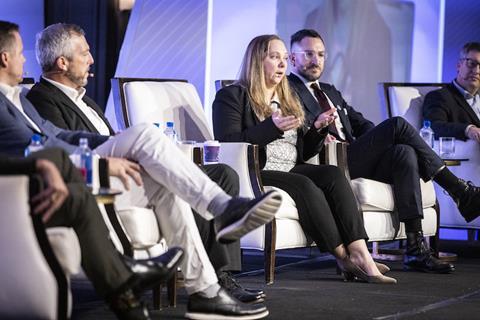
Jack Cooper’s executive chairperson, Sarah Amico, told delegates at ALSC Global that the company has opened five locations in Mexico this year and added 12 new customers, as it expands its presence in the region.
The firm is working closely with Mexican state-run rail provider Ferromex on the provision of haulaway services at the railheads and together they are responding to the need for new locations to provide much needed extra capacity for volume moves, according to Amico.
For the full story, click here.
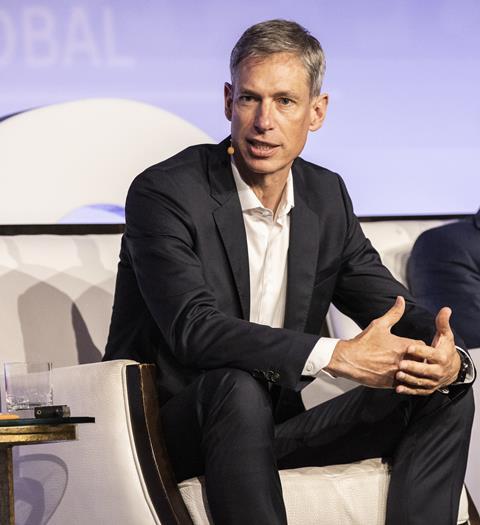
Oliver Bilstein, BMW Spartanburg said the biggest challenge in staying flexible and resilient is getting suppliers on board
Staying lean while growing was one of the main themes of ALSC Global 2023 - and one of the main focuses of Oliver Bilstein, VP of logistics and production control, BMW. He previously spoke to Automotive Logistics about how the Spartanburg plant is ‘performing while transforming’ in a special series, and he expanded further on this to the delegates at the conference. He said that one of the ways he achieves this is by insourcing and localising the supply chain.
“Resilience is the big buzzword here, and we took some strategic decisions to keep flexible. We took the decision to insource, with our new press shop due to start production at the beginning of next year,” Bilstein said. “Last year, we started our new crossdock which we also insourced.”
Bilstein also took part in our series of Red Sofa interviews, which you can watch here.
Our Red Sofa Interviews are now live! Click here to see exclusive interviews with experts from Toyota, BMW, Honda, Bosch and more.
On day two of ALSC Global, we heard about improving ETA and disrupting disruptions with data-driven models and estimations from experts at FreightVerify and Helrom. Click here for a deep dive into the discussion.
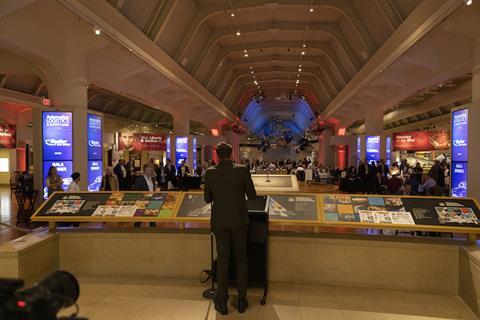
Thank you for joining us at ALSC Global 2023! We hope you had a brilliant time networking and hearing from other logistics experts. In the meantime, stay tuned here, as we will be updating the blog with indepth articles from the event.
For our final session of ALSC Global 2023 we are joined by logistics leaders sharing their lessons learned on how to lead a more resilient, secure and still flexible supply chain, building teams and careers fit for the future in North America.
As we near the end of the conference, we’re talking about packaging and how to do it more sustainably.
Bridget Grewal, director of Packaging Continuous Improvement at Magna International said dealerships are a hurdle to becoming greener. She said: ”We have to try to band together and get the dealerships to understand that we want the mechanic opening the box to put it in the can going to the recycling centre and not the can going to the landfill. But because they’re controlled by municipalities it’s very difficult to overcome.”
Bill Combs, vice president of Sustainability at Penske said: ”Some day I hope my role doesn’t even exist because sustainability will just be something everyone does.”
A big topic on the forefront of many of the delegate’s minds is getting freight back on track. We are joined by Martin Oberman, chairman, Surface Transportation Board and Nick Little, director, Railway Education at the Center for Railway Research and Education, Michigan State University to discuss the challenges of rail transport and how the automotive industry can mitigate them.
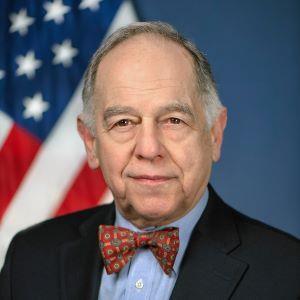
Oberman said that the automotive industry, like others that use rail freight, are hesitant to complain due to fear of retaliation. ”Until this spring, I hadn’t heard from the automotive industry at all, in the four years I’ve been on the baord, but the shortage of autoracks was brought to my attention then,” he said. “At one point I heard GM had about 70,000 finished vehicles sitting in the desert because they couldn’t move them. The shortage of autoracks is the only complaint I’ve heard from the automotive industry.
“Rail customers live in fear of the railroads, the railroads deny it, but the largest rail customers like GM fear retaliation if the complain. It’s very easy for the railroads to flip a switch and the plant don’t get their cars delivered. It’s very difficult to litigate that. Often we’re told the problems and then we’re asked not to talk to the railroad or identify who complained. They don’t want to file [a lawsuit], and if they do, you know that that industry has been pushed to the point where it’s going to be out of business.”
We are talking about the use of digital twins in the automotive logistics industry, and how they can help reduce time and cost while avoiding hiccups.
“Minutes matter in this industry,” said Ryan Rusnak, chief technology offerice and founder of Airspace. ”We need to figure out the fastest minimal risk path between two places.” He said that digital twins can be simplified and still have a positive impact. “We have a giant graph of every single flight in the world taking off and landing in a day, it’s like a spider’s web. It’s a partial representation that lets us minimise risk for one of the most risky and time critical aspects in logistics.
Adrian Jennings, chief product officer, Cognosos added: ”Those examples are not terribly complicated. You don’t have to have a giant AI model that’s threatening to take over the world. We can digitise everything we like, but everything has to connect. If you’re not thinking about how it connects with people, you’re not going to help your business.”
Jennings recently spoke on Automotive Logistics’ livestream in partnership with Cognosos about the barriers to digitalisation in the automotive supply chain, and said they are “failures of the tech industry”.
Cyber security is a growing threat to the automotive logistics industry, particularly as digitialisation becomes more prominent - and potential attacks are coming from all angles.
Wei Chen Lin, cybersecurity advisor, Cybersecurity and Infrastructure Security Agency said: ”It’s often irrelevant where the attacks are coming from. You can stop some of them, but attackers are smart enough to use US infrastructure to carry out attacks as well.”
Brian Joyner, vice president and division chief information officer, Ryder said: “The attackers are getting more advanced and they are causing significant disruption to the supply chain. It’s important that we all work together. It’s a team sport and we all need to share best practice to stop this threat.”
Welcome to day two at ALSC Global! Stay tuned as we update you with the latest insights from experts in the automotive logistics industry.
Transitioning to EVs is complex, particularly with changing regulations and standards, but the solution to this is collaboration and communication.
“The standards are ever changing, so our approach is to work with strategic expert advisors so we can better share our strategy,” said David Leich, executive director, Global Supply Chain, GM. ”We have a vertical integrated approach and we can share that strategy with our providers and have a network plan that means we can have a safe network in our supply chain that meets all requirements and standards.”
Kiki Nice, manager of Supply Chain at Daimler Trucks said: “You need great partners and a great team. We’re all learning, so a big component is vulnerability and there is no one right way. Everything that has been defined can be redefined, and that feedback loop is so important. Sometimes when you’re dealing with these challenging situations that are so dynamic, you find you’re in constant communication with your partners and supply chain.”
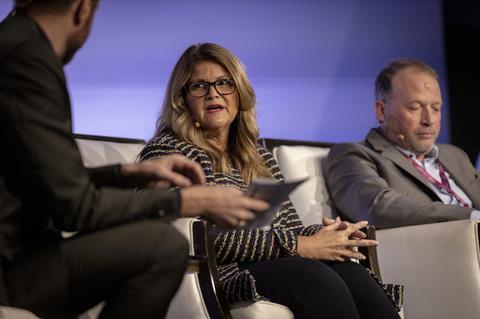
The pandemic and the semiconductor shortage have encouraged more visibility and transparency between OEMs and automotive tier suppliers, helping the industry not only to recover but to advance further, according to experts.
Renee Wawrzynski, executive director, Global Logistics at GM said: “It all starts with Covid, when we all thought we would shut down plants for a couple of weeks and come back and everything would be normal, but we’re still not back to normal. We discovered where our tier supply base was located while Covid was going around the world, and then with the semiconductor crisis too.”
She said that pre-pandemic, GM didn’t have complete visibility of its entire tiered supply base. “We knew that we didn’t have that, but we didn’t know what the impact was going to be,” she said. “We have that data now, so we’re going to be better moving forward.” Read the full story here.
The UAW strikes are on everyone’s mind here at ALSC Global, and Joe Langley, associate director at S&P Global said they may continue on until November.
He told the delegates that the UAW is “trying to keep everybody on their toes”. Langley said: ”The strikes have only just started and we are expecting they are going to be several weeks long, into October and maybe November even. We’re starting to have the conversations about what this will look like after the strike, but it’s going to be expensive for the three OEMs no matter what.”
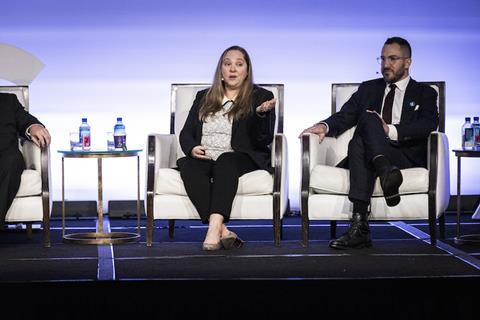
Speaking about finished vehicle logistics, Sarah Amico, executive chair of Jack Cooper said Mexico is an area experiencing rapid growth. She told the audience at ALSC Global 2023 that the FVL provider has opened five locations in Mexico this year, and added 12 new customers. “That’s a dramatic shift in the business for us over the last 25 years,” she said.
Jack Cooper has been expanding in recent years, having recently acquired Moore Transport’s fleet of 240 car carriers in July this year. “We’ve added 600 trucks during the last few years and that’s not super common, that could be a real speedbump for some of the smaller companies,” Amico said. ”In theory, the bigger you get, the more efficient you can get, and we are very proud to acquire more.”
The automotive logistics and supply chain sector have expectations of growth over the next year, and investments to match it, according to the crowd here at ALSC Global 2023.
In an audience poll, the majority of the crowd said they are optimistic about the market over the next 12 months, but there is still uncertainty and disruption.
The biggest challenge in maintaining stable logistics and supply chain operations in North America is unforeseen supply chain and logistics disruption across labour, weather and shortages (34%), according to the audience. Following this, the audience said poor and limited forecasting and sharing of volume plans was the second biggest (28%) challenge to the sector.
Things are in full swing already at ALSC Global 2023! This morning we heard from experts from GM, Kuehne + Nagel Management, DP World and Nissan North America, who spoke about the importance of supporting automotive tier suppliers to help increase and improve overall visibility.
Achim Glass, SVP, head of Global Business Development Automotive and New Mobility, Kuehne + Nagel Management said: “It’s all about partnership and exchanging data. That’s an area that is extremely undervalued in the automotive industry. There are tremendous opportunities to best use data to be more resilient, and we can make this industry even better. Our industry has proven itself to be the most resilient industry, and we can strengthen it with more visibility.”
Looking at the market over the next 12 months, Glass said he is “cautiously optimistic”.
”What keeps the majority of customers up at night is three things; capacity, which is oversupply or not enough demand, geopolitical tensions, and extreme weather conditions,” he said. “We can’t rest on our laurels.”
Welcome to ALSC Global 2023! Christopher Ludwig, editor-in-chief, Automotive Logistics is opening the conference in Dearborn, Michigan, talking about the importance of leadership in the supply chain, solutions that we can take away from the chaos, and how to collaborate to overcome disruption.
One of the sessions at this year’s ALSC Global will focus on how the automotive logistics industry can improve and champion gender equality and diversity across operations and management.
Panellists will include Amy Broglin-Peterson, Michigan State University, and Amy Paulsen, AMP Supply Chain Consulting. The pair recently spoke to Automotive Logistics about their experiences in the industry, and how a lack of diversity and inclusion is forcing much-needed talent out of the sector.
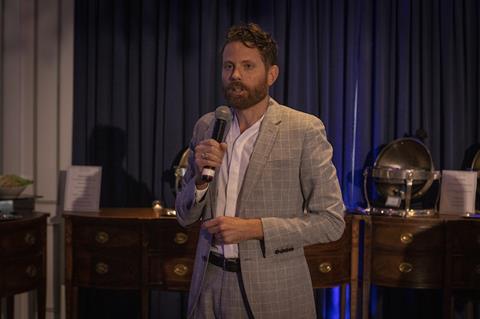
It’s almost time to kick off ALSC Global 2023 in Detroit! Over the coming days we will be keeping you updated with the insights and key topics discussed by automotive logistics experts.
In the meantime, read Automotive Logistics’ interview with Oliver Bilstein, VP of Production Control, Logistics and Material Control at BMW. Bilstein, who will be a speaker at the event, explains how BMW is investing in digitalisation, space and people to manage complexity, prepare for electrification and mitigate capacity shortages in the US.
Topics
- Agco
- Air Freight
- ALSC Global 23
- American Axle
- BMW
- Cybersecurity
- Digitalisation
- Editor's pick
- Electric Vehicles
- Emergency logistics
- Finished Vehicle Logistics
- Ford
- GM
- Honda
- Inbound Logistics
- Inventory management
- Logistics service provider
- Magna
- News
- Nissan
- North America
- Other news
- Plant Logistics
- Purchasing
- Rail
- Road
- Service Part Logistics
- Shipping
- Stellantis
- Suppliers
- Supply Chain Planning
- Sustainability
- Toyota
- Track-and-trace


























![Global[1]](https://d3n5uof8vony13.cloudfront.net/Pictures/web/a/d/s/global1_726550.svgz)




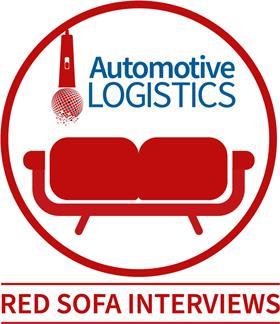
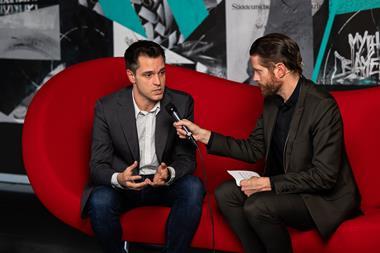
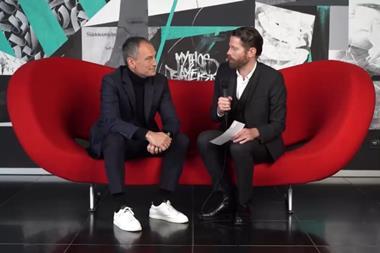
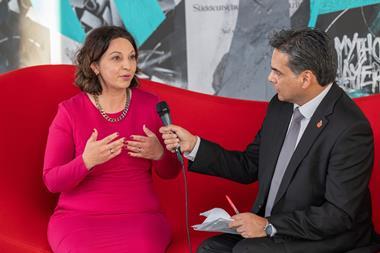
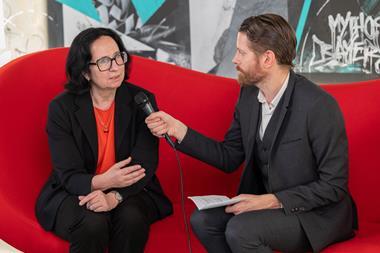
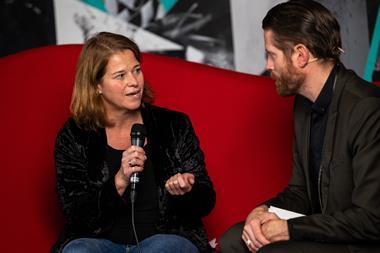
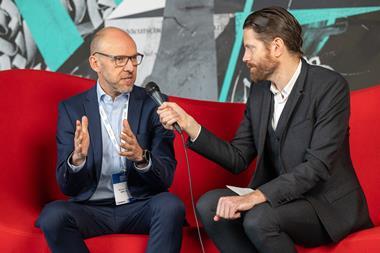



No comments yet